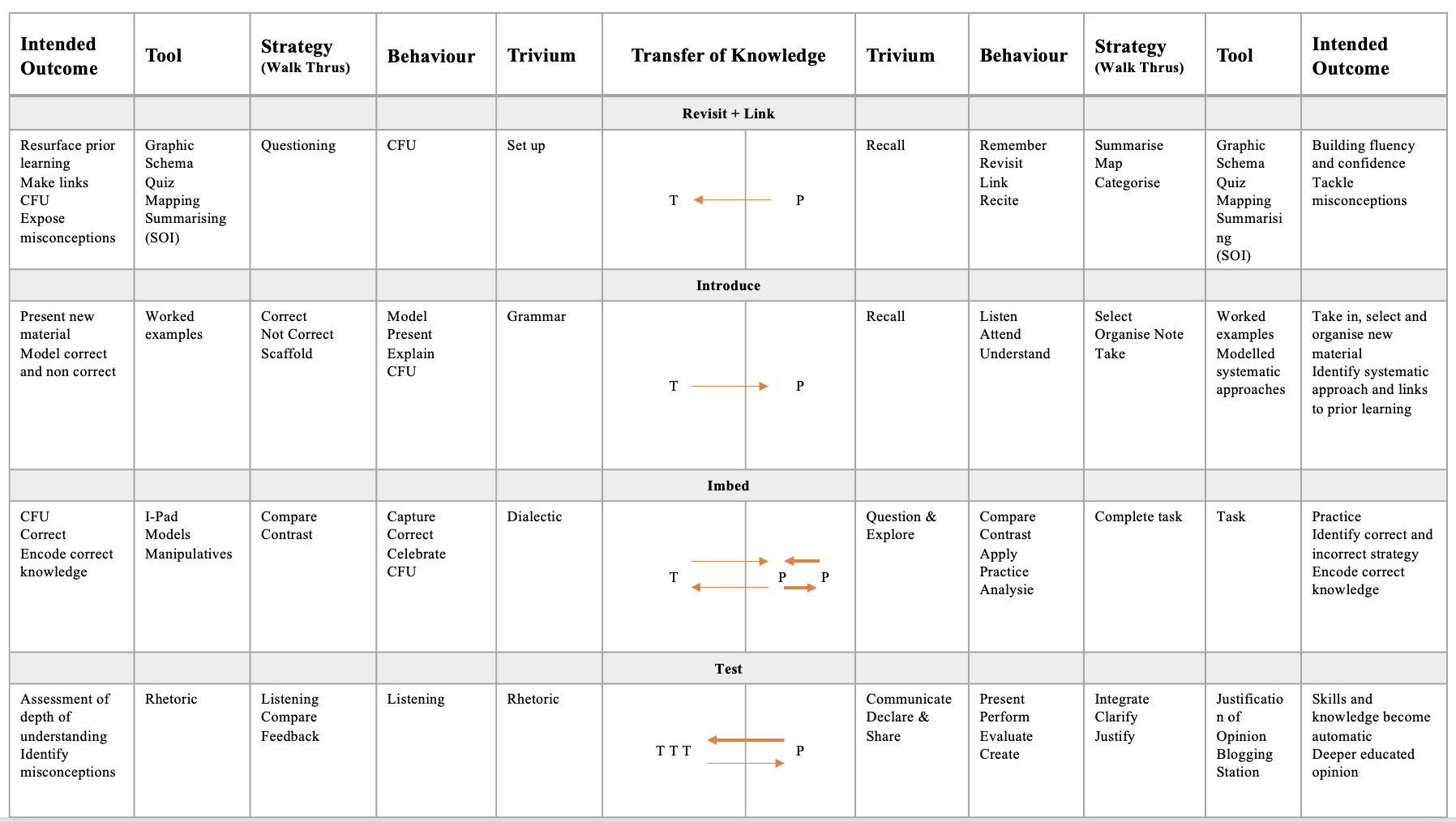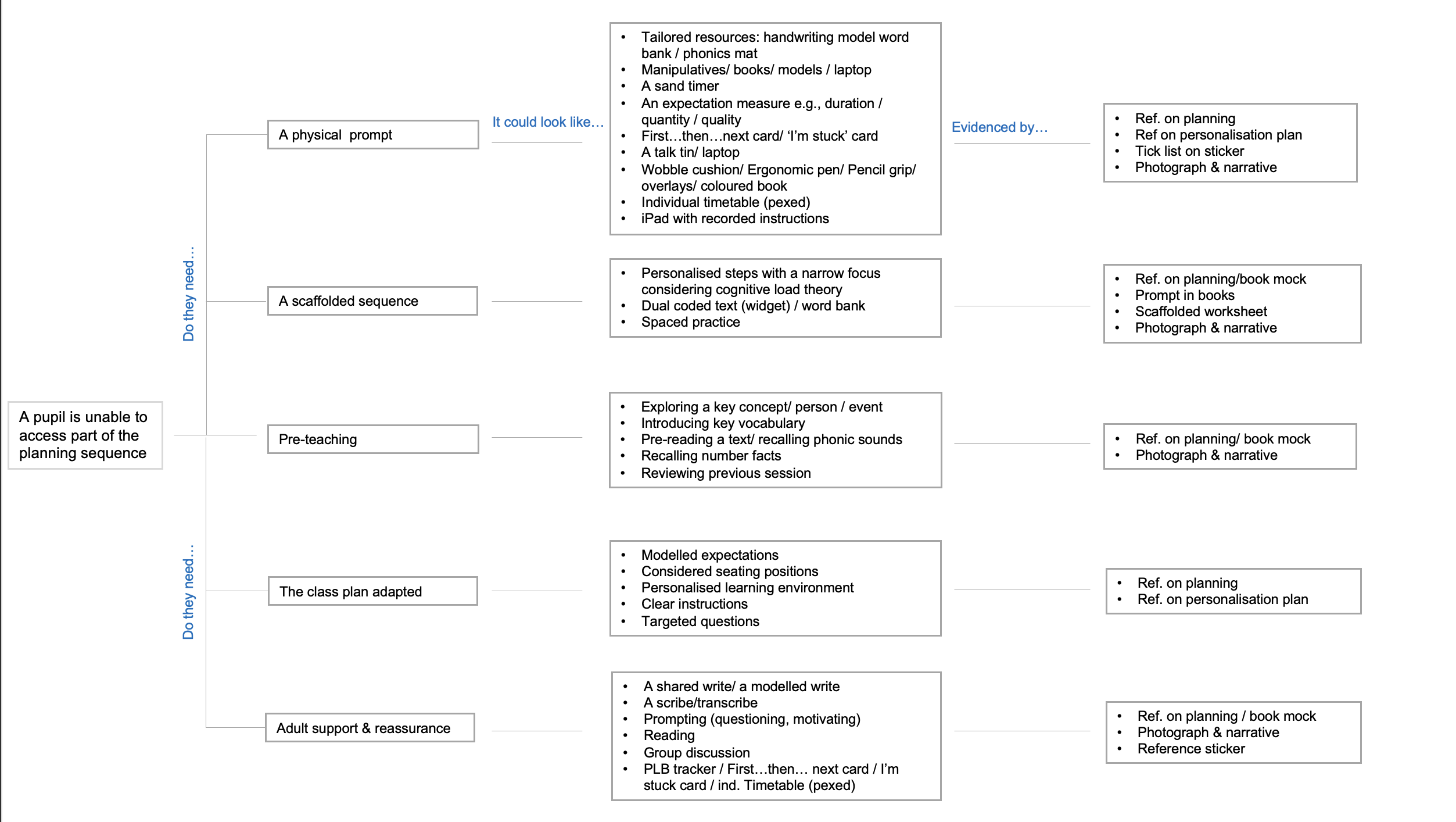Curriculum Teaching and Learning
Creating the conditions for informed teaching and learning to flourish
Mayflower references the outcomes of both in school reviews and research to inform its teaching and learning decisions. Staff arrive to Mayflower with a thorough induction of pedagogy ready to go. Staff are supported to firstly, immerse themselves in how Mayflower do things. Next, they study and explore this in class alongside other more experienced staff. Then, they review their findings and begin to innovate. Finally, they evaluate and innovate, feeding back what works and what needs to be tweaked before making tweaks to Mayflower's pedagogy plans.
Creating the conditions for effective collaboration
Fundamental to all Mayflower practice is that of teamwork. Each phase of school sets itself up so that staff meet regularly to reflect and refine their practice. Time is spent both live in lessons and post lesson to check on what has worked and what needs to be tweaked. Staff formalise their approach to carrying out impactful assessment for learning loops where the results of one lesson impacts on the design of the next.
Teams collaborate to organise themselves in lessons to maximise their impact. Staff take on roles that enable them to recognise misconceptions and progress, record observations, report on findings, review these finds and adjust planning and delivery to meet pupils' needs and respond by either teaching new content, re-teaching content or reacting live to misconceptions and misunderstandings as they arrive.
Teaching | An informed process by design
Mayflower is influenced by research to inform its lesson design. Subjects often have specific pedagogy that informs how both panning is organised, but also how lessons themselves are designed. A generic pedagogy, influenced by Rosenshine's Principles, and Martin Robinson's Trivium has been created at Mayflower and staff are inducted into the theory and delivery. Teachers are encouraged to be mindful of Mayflower's lesson design which is aimed at supporting them to effectively check for understanding. Pupils are guided towards deepening their understanding and articulation of concepts.

Access for All
It is the teacher’s responsibility to plan and deliver a sequence of progressive lessons. Lesson content must be relevant, loyal to overall curriculum design and accessible to all. Teachers should consider the following points when setting up lessons:
1. How will lessons be designed to ensure knowledge is transferred and lessons are responsive to need?
2. How will lesson design ensure pupils can demonstrate their depth of understanding?
3. What are the most appropriate behaviours at each stage of lesson design?
4. How will knowledge be taught and which strategies will be used to teach but also check for understanding?
5. Which teaching tools will be used to model and review concepts?
6. What is the intended outcome of lessons and what will success look like?
7. How will pupils make links in learning and deepen their understanding?
Lesson Design
Lesson design should consider 4 stages of implementation. These 4 stages include...
1. Revisiting and linking
Recall and revisit
2. Introducing and linking
Model new and link to old
3. Imbedding
Variation | Variation | Variation
4. Testing
Application
Pupils must also be aware of the all the above points and consciously set themselves up for learning new content and making links for prior learning. Pupils need to ask themselves:
1. What stage of the lesson design is this?
3. Where should I physically be / not be?
3. What do I have to do?
4. How long do I have to do it?
5. When should I do it?
6. How do I systematically tackle this task?
7. How does this link to prior learning?
8. Who can help me?
Synergy
There is synergy between the approach that both teachers and pupils take throughout the lesson design.
Teachers
Pupils
What is my role?
Teach | Re-Teach | React?
What is my role?
Recall | Listening | Applying | Evaluating
Recall | Question and Explore | Declare and Share
How are you ensuring relevant access for all to learning?
Which tools and systematic approaches will be needed to access this learning?
What is the content of lessons and which knowledge / skills are you planning to teach?
What must be learnt today?
What is the content of lessons and what must I understand for learning to make sense?
How does this content link to prior knowledge?
How does this content link to prior knowledge?
How will this knowledge / skills be taught?
Which strategies and systematic approaches will be used?
How will you model expectations?
How will you check for understanding?
How will you deepen understanding?
How will I record my learning?
Which strategies will I use to…
Model and organise my thinking?
Check for correct and incorrect?
Make links to learning?
Access for All
In order for lessons to be accessed by all pupils, they must consider the following aspects...

Deepening Understanding
'Together we can…create learning we will remember forever’
We want pupils to go beyond being able to remember what they have been taught. We want them to enjoy applying their knowledge in wider contexts. We want them to understand content and make links to learning in the real world. A fundamental part of the learning process is being able to test new learning against what we already know. This process of testing creates opportunities to deepen out understanding and make sense of what we have been taught. We want pupils to engage with a generative learning process. One that continuously makes links between old and new learning. Teachers and pupils use strategies to deliver lessons, check for understanding and deepen understanding. The following methods are cited by ‘Fiorella and Mayer’ as the most impactful generative learning strategies.
1. Summarising
Example here...
2. Mapping
Example here...
3. Drawing
Example here...
4. Imagining
Example here...
5. Self-testing
Example here...
6. Self-explaining
Example here...
7. Learning by teaching
Example here...
8. Learning by enacting
Example here...
Teaching | Empowering staff to make informed decisions
Staff at Mayflower are guided through a rigorous and adaptive model of continued professional development. All staff are mentored through the suite of Wallk Thru resources provided by Tom Sherrington and Oliver Cavigolioli. Teachers study Walk Thru modules and apply learning by making informed decisions based on their intended teaching and learning outcome. Support staff follow a weekly study session in teams and are mentored throughout the term by more experienced staff to evaluate their impact in lessons. Staff capture the process of teaching and learning in action and create digital portfolios, organised and specified against study modules, before articulating the aspects of their work that are impactful and those aspects that need tweaking. Staff host 'teach meet' style meetings and invite feedback on their practice. It's an ongoing and continuous process of both personal but also collective reflection and refinement.
